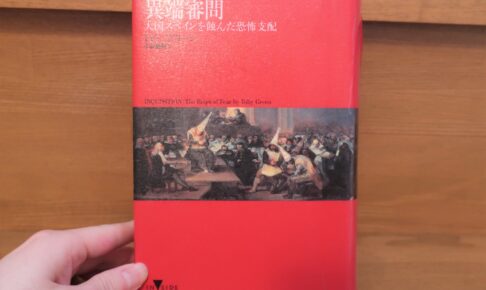(11) To study the Inquisition is to consider "What is man?
The more we learn, the more we realize that things are not so simple.
They could accuse the Inquisition of being weak on bribes and power, accuse torturers of being sadists, and accuse those in favor of war for the sake of colonial expansion of having made war." The author also states. It is easy to condemn a man who commits atrocities as an "evil man" and hold him responsible for his evil. But what if the evil is not unique to him, but is borne by human beings themselves? By blaming him, we are also blaming the human being itself, including ourselves.
The system of the Inquisition is not limited to medieval Spain. It continues in our world today. It is necessary to think about such human beings themselves.









































